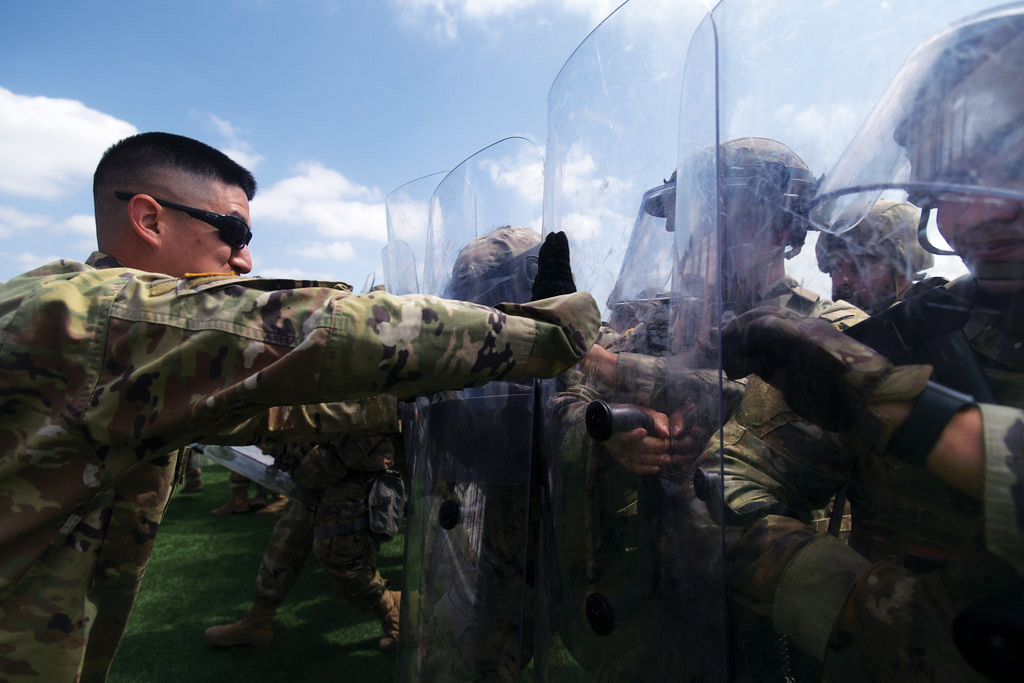Federal Judge Charles Breyer ruled that former President Donald Trump acted illegally when he ordered thousands of National Guard troops into Los Angeles earlier this summer on Sept. 2.
The judge said the move violated the Posse Comitatus Act of 1878, a law that prevents the U.S. military from being used as a police force inside the country except in rare and extreme situations. Congress passed the Posse Comitatus Act after the Civil War to make sure the president could not use the armed forces as a domestic police force.
Trump had sent about 4,000 National Guard troops and 700 U.S. Marines to Los Angeles in June, saying they were needed to protect federal agents during large protests against immigration raids by Immigration and Customs Enforcement. Around 300 troops remain in the city today.
The lawsuit that led to this ruling was Newsom v. Trump, filed on June 10 by California Governor Gavin Newsom and Attorney General Rob Bonta. They argued that Trump had no legal authority to take control of California’s Guard and use them for policing duties. California’s legal team said that the federal government violated the Posse Comitatus Act. They argued that the deployment was unlawful because it lacked the necessary legal justification and bypassed state authority.
Additionally, the lawsuit brought up the Tenth Amendment, saying that the federal government overstepped its constitutional bounds by interfering with state control over its National Guard. In response, the Trump administration defended the deployment, citing Title 10, Section 12406 of the U.S. Code, which allows the President to federalize National Guard units under certain conditions, such as suppressing insurrections or executing federal laws when local authorities are unable or unwilling to do so. The administration argued that the situation in Los Angeles met these criteria, justifying the intervention.
Newsom had denounced the deployment from the start, calling it “illegal and immoral.” State officials said that local law enforcement and the state guard were capable of handling the protests and that Trump’s action threatened California’s independence.
In his 52-page ruling, Judge Breyer rejected the Trump administration’s reasoning. He said that the president cannot send in the military to do police work when civilian authorities are available. He noted that while it is true that federal agents deserve protection, that does not justify sending soldiers to patrol city streets or manage protests.
Breyer said that accepting Trump’s arguments would allow the president to create a national police force, something the Constitution was designed to prevent.
“To use this as a hook to send military troops alongside federal agents wherever they go proves too much and would frustrate the very purpose of the Posse Comitatus Act,” he said.
The Trump administration quickly pushed back against the ruling. White House spokeswoman Anna Kelly called Judge Breyer a “rogue judge” who was trying to weaken the president’s authority.
Trump defended his actions, saying that Los Angeles was unsafe and that troops were needed to stop “violence and destruction.” He also repeated his threat to send soldiers into other cities, including Chicago, Baltimore and New York, places he has often criticized as crime-ridden and poorly governed.Judge Breyer did not order the troops to leave Los Angeles immediately. Instead, he delayed his ruling until Sept. 12, giving the Trump administration time to appeal to the Ninth Circuit Court of Appeals. For now, the troops may stay in the city, but they are barred from performing law enforcement duties such as making arrests, conducting searches or controlling crowds.
California officials have said they want the soldiers returned fully to state command as soon as possible, arguing their presence is unnecessary and risks intimidating residents.
Governor Newsom and Attorney General Bonta said the ruling was a win for the state and for the Constitution. Bonta said the decision showed “the president is not a king,” while Newsom said that no president has the right to override a state’s ability to govern itself. Supporters of the decision said it was a defense of civil liberties and a reminder that the military should never be used against ordinary Americans.
The Trump administration is expected to continue fighting the decision, and legal experts said the case could reach the Supreme Court.
Some predict Trump may try to rely on the Insurrection Act, a separate law that allows the president to use the military in rare emergencies when local governments cannot maintain order. That law, however, has been used only a few times in history and under very extreme circumstances. Whether the courts would support Trump’s interpretation remains unclear.

